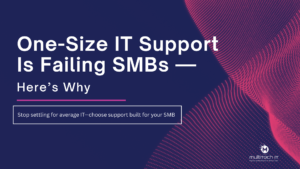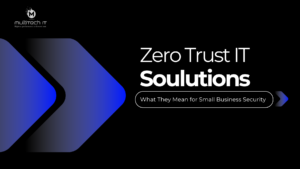Do you want a choice to shift your data for their proper management?
The hybrid cloud strategy gives you that choice. You can choose to deploy your workload in the best location. Let’s say you’re a developer. You tend to ship your innovation to the application development codes in the Gold Coast. But, the disrupting technological advancements make it really a tough thing to fight with. They invite vulnerability. Your data management in the Gold Coast faces security threats. So, it’s essential to cover up your data in the hybrid cloud. Intel, IBM, Microsoft and even Google are also leveraging on this hybrid computing trend.
The hybrid computing technology is a perfect combination of the public and the private cloud. If you go with the former one as your data management choice, you get the resources, like virtual machines, applications, storage etc. accessible over the internet. Keep the fact in your mind that it’s not only you who enjoy these resources. You would have multiple clients sharing the same virtual infrastructure.
If you talk about the private cloud, it’s built to cater the personalized experience. The services are of ‘n’ numbers, be it related to the storage, network or computing. You exclusively own the server. Also, you’ll be the sole proprietor of the data accessibility.
Let’s go through the rundown of the benefits of the hybrid cloud that can help in data management efficiencies.
1. Extremely affordable:
The Intel disclosed an interesting projection. The analysts projected that 90% of the IT enterprises will adopt the hyper cloud by 2020. Even, IBM research also conducted that 54% executives find that data management in this hybrid environment fit in their pockets. You need to pay only for the extra cloud space.
Besides, there is absolutely no need to put your hard-earned money on the massive IT infrastructure. Neither do you need to employ data management staff. You can accomplish your computing needs through it. If your data expand with the time, you can pay to adjust this cloud’s size rather than investing in maintaining an in-house data management system.
Simply put, it’s more affordable than a private cloud.
2. Intensive Security:
The disrupting technology advancements threaten data centers. It’s a big issue with the public cloud. There are certain sensitive and personal data that you can’t store there. That datasets require high level of security. The private cloud hosts encryption service. It codifies your data in the incomprehensible form so that the hackers won’t misuse them.
The hybrid cloud stores your data on a dedicated server, which is a synonym of the security. This is how it helps you to use the added capacity of the public cloud along with ensuring agility and security.
3. Scalability
The combination of private and public cloud is irresistible. You can access whatever you want from anywhere. You won’t believe the way it facilitates moving data across the cloud. You get its access with the minimum downtime. Besides, it bets on hosting security compliant applications. It means that you can grab the flexibility together with scalability that is the best of both worlds.
4. Agile network:
If your business requirements go up and down by the time, this mixed breed of cloud allows you to do the needful. Today’s digital marketplaces mandate you to have a dynamic architectural framework to meet IT needs. You always tend to handle unpredictable roadblocks in the usage with seamlessness. When your data feeds are at the peak, you can shift to the public cloud. This hack can sail you across the downtime issue safely.
5. Real-time analytics work:
The dynamic architecture of the digital data needs different workloads. Your decisions may skip the viability that the real-time data could provide. You need a powerful IT infrastructure that can extract the real-time data. Also, where you call that data from should have a compliant computing environment. The hybrid cloud offers you that much storage in accordance to your data size.








